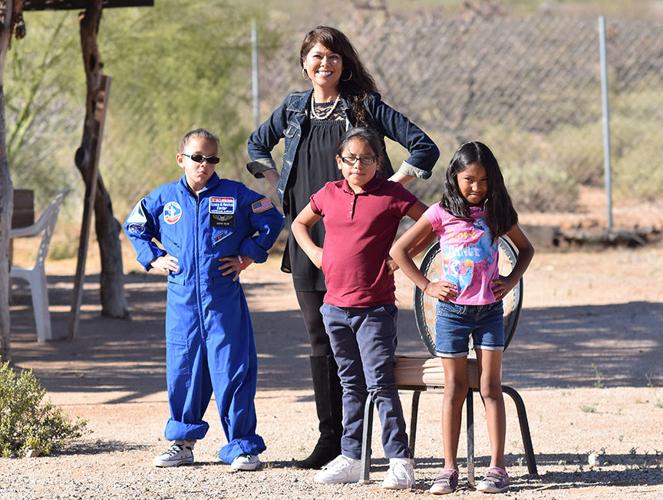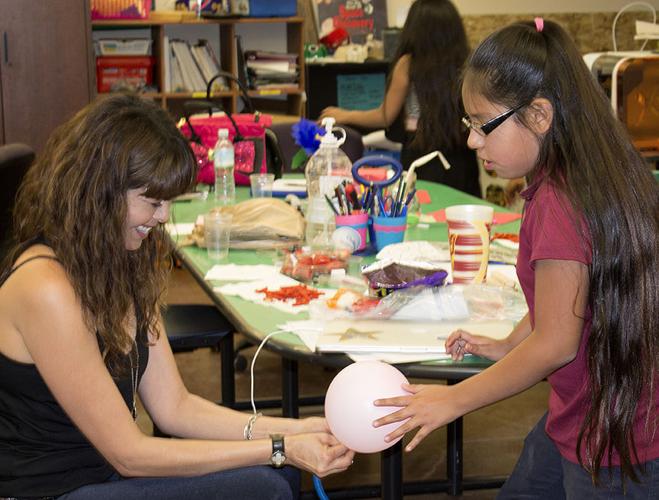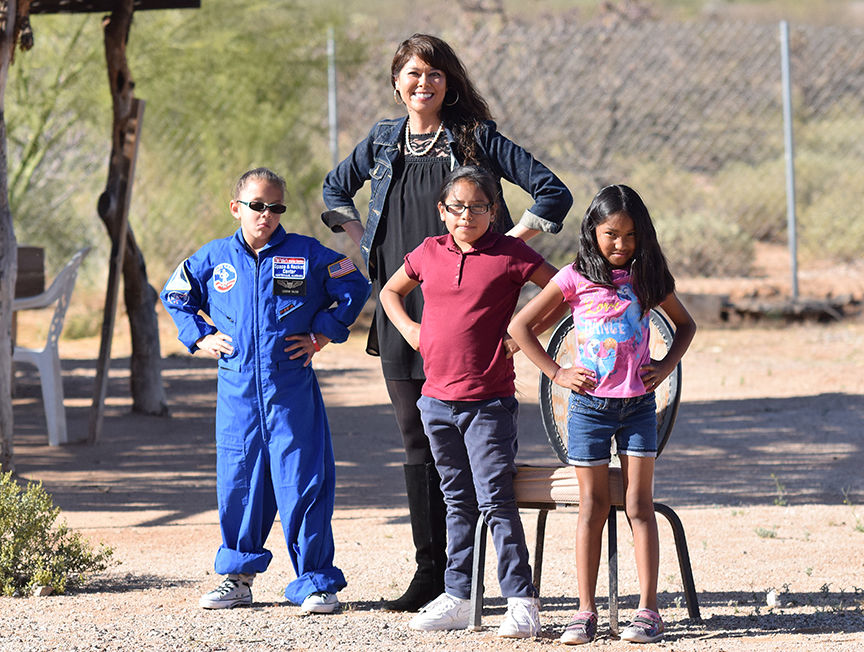A group of girls sits around a table scattered with snacks, balloons and papers at the Pascua Yaqui Clubhouse, excitedly talking about the upcoming week.
They're supposed to be inflating balloons for a science experiment as part of the mentoring program they're in. But they're too wound up. And a little nervous.
Their first week of summer break isn't going to be filled with lazy days and television.
Instead, they're catching an early morning plane on Sunday to Huntsville, Alabama for a week of space camp.
Taking Up Space
Three girls who attend the Pascua Yaqui Clubhouse every week are able to go to space camp, thanks to Taking Up Space, a program with a mission to expand opportunities and future educational and career goals for Native American girls.
"We wanted to reach out to Native American Girls," said Czarina Salido, director of Taking Up Space. "I think they're underrepresented...There are groups for girls, but there's really none for Native American girls, so we thought this would touch different lives."
The program includes a weekly mentoring session at the clubhouse where the girls do science projects and experiments with Salido, who is also the executive director of Time in Cosmology — a Tucson non-profit which aims to bring together researchers, students and others interested in STEM (science, technology, engineering, mathematics).

Director of Taking Up Space, Czarina Salido and Soledad Ramirez, 9, work on inflating a balloon for a science project in May 2017.
"When I first came here, I originally wanted to pick junior-high-aged girls from school, but after I got here I realized these girls would probably benefit a little more from a program like this," Salido said. "I realized they didn't have much of a STEM academia at all in their background. Science is very minimal. I realized in order for them to be prepared for space camp I needed to prepare them a little bit to learn about STEM in general. That's why I decided to make it a mentoring every week."
This is the program's first group of girls heading to space camp.
"We're gonna meet new people and we're kinda representing our tribe," said Saydee Valenzuela, a 10-year-old fourth grader.
She says she is most looking forward to learn about what astronauts do and what it feels like to be one.
Saydee wants to do a lot when she grows up, which is exactly what Taking Up Space wants to inspire.
"I want to go to space, but then I want to be a lawyer and learn about science," Saydee said.
When Serena Martinez, an 11-year-old fifth grader, first found out she was going to space camp, she "got happy."
"I'm excited about meeting new people and meeting an astronaut and wearing a big ole suit," Serena said.
Salido hopes to take the same group two more times.
"Space camp is three parts: Space camp, robotics and aviation," Salido said. "It gets more intense as it goes along."
She also hopes to add more girls along the way.
The trip isn't cheap. A week at space camp costs about $1,000 per person. The program is funded through donations, so the girls don't have to pay for anything.

Space camp inspired drawings decorate the bulletin board in the Pasqua Yaqui Clubhouse.
Why space camp
When Salido was a kid, she got to go to space camp and she said it was life-changing.
"It was extremely empowering," Salido said. "It was a lot of fun and it was all science and space. So I thought that if I had so much fun, it would be good to empower the girls and thought they could get immersed in STEM and hopefully it will ripple out later in life."
Soledad Rameriz, a nine-year-old third grader isn't really into space stuff, but she is into STEM.
"I want to be a doctor because I want to help people," Soledad said.
While at space camp, the girls are on a simulated mission. The theme is "Mission to Mars." They'll get to train to be astronauts, using some of the same simulators astronauts from the Apollo Mission used, Salido said.
They'll get harnessed in a space suit and go outside of a mock shuttle and fix a satellite, while communicating with mission control.
"It's make believe, but hands-on STEM," Salido said.
If nothing else, Salido hopes the girls will come back with a few new skills.
"I'm hoping for a good experience," Salido said. "Maybe they won't all go into STEM, but maybe they'll get a little empowerment, leadership and teamwork skills."
To learn more about Taking Up Space, or to donate to the program, click here.







